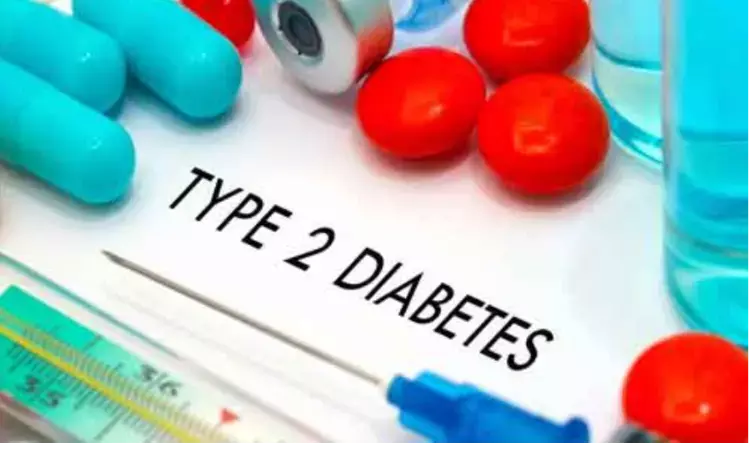- Home
- Medical news & Guidelines
- Anesthesiology
- Cardiology and CTVS
- Critical Care
- Dentistry
- Dermatology
- Diabetes and Endocrinology
- ENT
- Gastroenterology
- Medicine
- Nephrology
- Neurology
- Obstretics-Gynaecology
- Oncology
- Ophthalmology
- Orthopaedics
- Pediatrics-Neonatology
- Psychiatry
- Pulmonology
- Radiology
- Surgery
- Urology
- Laboratory Medicine
- Diet
- Nursing
- Paramedical
- Physiotherapy
- Health news
- Fact Check
- Bone Health Fact Check
- Brain Health Fact Check
- Cancer Related Fact Check
- Child Care Fact Check
- Dental and oral health fact check
- Diabetes and metabolic health fact check
- Diet and Nutrition Fact Check
- Eye and ENT Care Fact Check
- Fitness fact check
- Gut health fact check
- Heart health fact check
- Kidney health fact check
- Medical education fact check
- Men's health fact check
- Respiratory fact check
- Skin and hair care fact check
- Vaccine and Immunization fact check
- Women's health fact check
- AYUSH
- State News
- Andaman and Nicobar Islands
- Andhra Pradesh
- Arunachal Pradesh
- Assam
- Bihar
- Chandigarh
- Chattisgarh
- Dadra and Nagar Haveli
- Daman and Diu
- Delhi
- Goa
- Gujarat
- Haryana
- Himachal Pradesh
- Jammu & Kashmir
- Jharkhand
- Karnataka
- Kerala
- Ladakh
- Lakshadweep
- Madhya Pradesh
- Maharashtra
- Manipur
- Meghalaya
- Mizoram
- Nagaland
- Odisha
- Puducherry
- Punjab
- Rajasthan
- Sikkim
- Tamil Nadu
- Telangana
- Tripura
- Uttar Pradesh
- Uttrakhand
- West Bengal
- Medical Education
- Industry
Dapagliflozin, saxagliptin combo bests glimepiride for controlling blood sugar in diabetes: Study

USA: The combo of dapagliflozin+saxagliptin+metformin was associated with better blood sugar control, efficacy, and metabolic benefits than glimepiride+metformin in type 2 diabetes (T2D) patients, according to a recent study. The study appears in the journal Diabetes, Obesity and Metabolism.
The study stated that there were greater reductions in body weight, HbA1c, and liver enzymes and greater maintenance of glycaemic control with DAPA+SAXA+MET than with GLIM+MET at 156 weeks in this 104-week extension to a 52-week study.
The optimal pharmacological approach for achieving and maintaining glycaemic targets in T2D patients is currently unknown. Some evidence suggests that early intensive treatment with a combination of a DPP-4 inhibitor and MET may be more beneficial than sequential addition of a DPP-4 inhibitor when MET monotherapy fails to maintain glycaemic control. However, more information is needed to determine whether the durability of glycaemic response and metabolic benefits can be maintained over the long term.
To fill this knowledge gap, Juan P. Frías, National Research Institute, Los Angeles, California, USA, and colleagues reported the results of a 104-week extension to a 52-week study in which dapagliflozin plus saxagliptin (DAPA+SAXA) improved glycaemic control, liver fat, and metabolic variables compared with glimepiride (GLIM) in participants with type 2 diabetes (T2D) receiving background metformin.
In the 04-week extension to the 52-week global, multicentre, parallel-group, active-controlled, double-blind study, the randomized patients were continued to receive DAPA+SAXA (10/5 mg) plus placebo, or GLIM (1-6 mg) plus placebo, once daily in the ratio of 1:1. The study included people aged ≥18 years, having T2D [HbA1c] 58.5-91.3 mmol/mol [7.5%-10.5%]), and a body mass index of 20.0 to 45.0 kg/m2, and received metformin (MET; ≥1500 mg/d).
Key outcomes were: requirement for treatment intensification, based on HbA1c ≥53 mmol/mol (7%); achieving therapeutic glycaemic response; and changes in adipose tissue and liver fat on magnetic resonance imaging in a substudy. Overall, 382 participants entered and 338 completed the 104-week extension period (MRI substudy, n = 82).
The study yielded the following findings:
- The need for treatment intensification during the 156-week period was lower for DAPA+SAXA+MET (37.0%) than GLIM+MET (55.6%; hazard ratio 0.52).
- At week 156, 21.4% of DAPA+SAXA+MET versus 11.7% of GLIM+MET participants achieved therapeutic glycaemic response (HbA1c <53 mmol/mol; odds ratio 2.1).
- DAPA+SAXA+MET led to greater adjusted mean reductions from baseline in liver fat and visceral and subcutaneous adipose tissue volumes versus GLIM+MET at week 122 (least-squares mean difference from GLIM+MET −4.89%, −0.41 L and −0.44 L, respectively).
- Safety was consistent with that of the mono components.
These findings indicate that overall, glycaemic control, metabolic benefits, and efficacy were better maintained with DAPA+SAXA+MET than with GLIM+MET in T2D, with a safety profile consistent with that of the individual components, concluded the authors.
Reference:
The study titled, "Long-term effects of dapagliflozin plus saxagliptin versus glimepiride on a background of metformin in patients with type 2 diabetes: Results of a 104-week extension to a 52-week randomized, phase 3 study and liver fat MRI substudy," is published in the journal Diabetes, Obesity and Metabolism.
DOI: https://dom-pubs.onlinelibrary.wiley.com/doi/10.1111/dom.14548
Dr Kamal Kant Kohli-MBBS, DTCD- a chest specialist with more than 30 years of practice and a flair for writing clinical articles, Dr Kamal Kant Kohli joined Medical Dialogues as a Chief Editor of Medical News. Besides writing articles, as an editor, he proofreads and verifies all the medical content published on Medical Dialogues including those coming from journals, studies,medical conferences,guidelines etc. Email: drkohli@medicaldialogues.in. Contact no. 011-43720751


